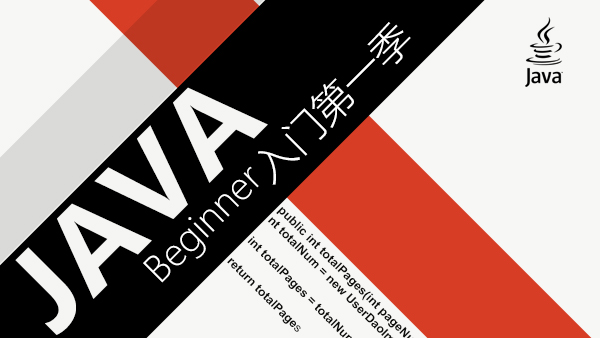Spring Cloud 提供了一个部署微服务的平台,包括了微服务中常见的组件:配置中心服务, API网关,断路器,服务注册与发现,分布式追溯,OAuth2,消费者驱动合约等。我们不必先知道每个组件有什么作用,随着教程的深入,我们会逐渐接触到它们。一个分布式服务大体结构见下图(图片来自于:spring.io):

使用Spring Cloud搭建分布式的系统十分简单,我们只需要几行简单的配置就能启动一系列的组件,然后可以在代码中控制、使用和管理这些组件。Spring Cloud使用Spring Boot作为基础框架,可以参考我的上一篇博客介绍如何创建一个Spring Boot项目, Spring Boot 2.0.1 入门教程。本教程将教大家如何配置服务中心服务,并通过web客户端读取配置。
基础环境- JDK 1.8
- Maven 3.3.9
- IntelliJ 2018.1
- Git
首先用IntelliJ创建一个Maven项目,pom.xml文件内容如下:
<?xml version="1.0" encoding="UTF-8"?>
<project xmlns="http://maven.apache.org/POM/4.0.0"
xmlns:xsi="http://www.w3.org/2001/XMLSchema-instance"
xsi:schemaLocation="http://maven.apache.org/POM/4.0.0 http://maven.apache.org/xsd/maven-4.0.0.xsd">
<modelVersion>4.0.0</modelVersion>
<groupId>cn.zxuqian</groupId>
<artifactId>web</artifactId>
<version>1.0-SNAPSHOT</version>
<parent>
<groupId>org.springframework.boot</groupId>
<artifactId>spring-boot-starter-parent</artifactId>
<version>2.0.1.RELEASE</version>
</parent>
<dependencies>
<dependency>
<groupId>org.springframework.cloud</groupId>
<artifactId>spring-cloud-starter-config</artifactId>
</dependency>
<dependency>
<groupId>org.springframework.boot</groupId>
<artifactId>spring-boot-starter-actuator</artifactId>
</dependency>
<dependency>
<groupId>org.springframework.boot</groupId>
<artifactId>spring-boot-starter-web</artifactId>
</dependency>
</dependencies>
<dependencyManagement>
<dependencies>
<dependency>
<groupId>org.springframework.cloud</groupId>
<artifactId>spring-cloud-dependencies</artifactId>
<version>Finchley.M9</version>
<type>pom</type>
<scope>import</scope>
</dependency>
</dependencies>
</dependencyManagement>
<properties>
<java.version>1.8</java.version>
</properties>
<build>
<plugins>
<plugin>
<groupId>org.springframework.boot</groupId>
<artifactId>spring-boot-maven-plugin</artifactId>
</plugin>
</plugins>
</build>
<repositories>
<repository>
<id>spring-milestones</id>
<name>Spring Milestones</name>
<url>https://repo.spring.io/libs-milestone</url>
<snapshots>
<enabled>false</enabled>
</snapshots>
</repository>
</repositories>
</project>dependencyManagement可以为所有的依赖指定统一的版本号,这里的Spring-cloud依赖版本均为Finchley.M9,然后使用repository指定此版本的仓库。spring-cloud-starter-config提供了访问配置中心服务的API接口。
添加控制器
新建一个控制器类 cn.zxuqian.controllers.HelloController, 并添加如下代码:
package cn.zxuqian.controllers;
import org.springframework.beans.factory.annotation.Value;
import org.springframework.cloud.context.config.annotation.RefreshScope;
import org.springframework.web.bind.annotation.RequestMapping;
import org.springframework.web.bind.annotation.RestController;
@RefreshScope
@RestController
public class HelloController {
@Value("${message: 本地消息}")
private String message;
@RequestMapping("/message")
public String message() {
return this.message;
}
}
一个简单的控制器,匹配/message路径,并返回message变量的值。这里先不用管 @RefreshScope 这个注解,等下会用到时再讲。@Value会取来自配置中心服务的配置项,或本地环境变量等等,此处取了配置中心的message的值,并给了它一个默认值"本地消息",即如果远程配置中心不可用时,此变量将会用默认值初始化。
添加配置文件
bootstrap.xml
我们需要在web客户端项目完全启动之前去加载配置中心的配置项,所以需要在src/main/resources下创建bootstrap.yml文件,然后指定此客户端的名字和远程配置中心的uri:
spring:
application:
name: web-client
cloud:
config:
uri: http://localhost:8888yml相比properties文件更加简洁,不用写很多重复的前缀,上边的内容可以转换为对应的properties:
spring.application.name=web-client
spring.cloud.config.uri=http://localhost:8888spring.application.name指定了此项目的名字,用来取配置中心相同文件名的配置文件,即配置中心应有一文件名为web-client.yml的配置文件。spring.cloud.config.uri指定了远程配置中心服务的uri地址,默认为http://localhost:8888
新建一个Maven项目,使用如下pom配置:
<?xml version="1.0" encoding="UTF-8"?>
<project xmlns="http://maven.apache.org/POM/4.0.0"
xmlns:xsi="http://www.w3.org/2001/XMLSchema-instance"
xsi:schemaLocation="http://maven.apache.org/POM/4.0.0 http://maven.apache.org/xsd/maven-4.0.0.xsd">
<modelVersion>4.0.0</modelVersion>
<groupId>cn.zxuqian</groupId>
<artifactId>config-server</artifactId>
<version>1.0-SNAPSHOT</version>
<packaging>jar</packaging>
<parent>
<groupId>org.springframework.boot</groupId>
<artifactId>spring-boot-starter-parent</artifactId>
<version>2.0.1.RELEASE</version>
<relativePath/> <!-- lookup parent from repository -->
</parent>
<properties>
<project.build.sourceEncoding>UTF-8</project.build.sourceEncoding>
<java.version>1.8</java.version>
</properties>
<dependencies>
<dependency>
<groupId>org.springframework.cloud</groupId>
<artifactId>spring-cloud-config-server</artifactId>
</dependency>
<dependency>
<groupId>org.springframework.boot</groupId>
<artifactId>spring-boot-starter-test</artifactId>
<scope>test</scope>
</dependency>
</dependencies>
<dependencyManagement>
<dependencies>
<dependency>
<groupId>org.springframework.cloud</groupId>
<artifactId>spring-cloud-dependencies</artifactId>
<version>Finchley.M9</version>
<type>pom</type>
<scope>import</scope>
</dependency>
</dependencies>
</dependencyManagement>
<build>
<plugins>
<plugin>
<groupId>org.springframework.boot</groupId>
<artifactId>spring-boot-maven-plugin</artifactId>
</plugin>
</plugins>
</build>
<repositories>
<repository>
<id>spring-milestones</id>
<name>Spring Milestones</name>
<url>https://repo.spring.io/libs-milestone</url>
<snapshots>
<enabled>false</enabled>
</snapshots>
</repository>
</repositories>
</project>spring-cloud-config-server即为配置中心服务的核心依赖。
配置Application
新建一个Java类cn.zxuqian.Application,添加如下代码:
package cn.zxuqian;
import org.springframework.boot.SpringApplication;
import org.springframework.boot.autoconfigure.SpringBootApplication;
import org.springframework.cloud.config.server.EnableConfigServer;
@EnableConfigServer
@SpringBootApplication
public class Application {
public static void main(String[] args) {
SpringApplication.run(Application.class, args);
}
}
- 使用
@EnableConfigServer这一条注解即可把该Maven项目作为配置中心服务启动。
新建Git仓库
配置中心的文件都是基于版本控制的,所以需要在本地新建一个git仓库来保存配置文件。或者也可用公共远程git仓库,github, 码云等。在任意位置(如项目的上级目录)创建一空白文件夹,这里叫做config,可以使用任何名字。然后进入此文件夹下,运行
$ git init来初始化git仓库,然后新建一个文件,名为web-client.yml,并添加如下内容:
message: 此条消息来自于cofig server注意此文件名需要和之前在web项目中配置的spring.application.name保持一致。这个文件的内容就是web客户端要获取的message的值。创建完成之后,运行如下git命令提交到本地仓库:
$ git add web-client.yml
$ git commit -m "added web-client.yml"配置git仓库位置
我们需要为配置中心指定上述创建的git仓库地址。在src/main/resources下创建applicaiton.yml文件,提供如下内容:
server:
port: 8888
spring:
cloud:
config:
server:
git:
uri: ${HOME}/development/codes/backend/gitee/config
此文件指定了配置中心服务的端口号,和保存配置文件的git仓库目录,如果是远程仓库,可以直接指定url地址。到此,配置中心服务创建完成。
测试首先启动配置中心服务,使用spring-boot maven插件:spring-boot:run。启动成功后再启动web客户端,访问http://localhost:8080/message,如果看到此条消息来自于cofig server即配置成功。然后关闭配置中心服务,再重启web客户端,访问http://localhost:8080/message,我们就会看到本地消息。
动态更新配置
那么每次配置更新后都要重启是不是很麻烦?Spring boot提供了spring-boot-starter-actuator组件,用来进行生产环境的维护,如检查健康信息等。还记得上面HelloController的@RefreshScope注解吗?使用它我们可以动态的加载配置中心修改后的配置。然后我们还需要在配置中心的web-client.yml添加如下内容用以暴露acurator的/refresh终端api。
message: 此条消息来自于cofig server
management:
endpoints:
web:
exposure:
include: "*"更新完成后提交的git仓库,然后重启配置中心服务和web客户端。修改message为
message: 更新:此条消息来自于cofig server然后发送一个空的post请求到/refresh
$ curl http://localhost:8080/actuator/refresh -d {} -H "Content-Type: application/json"之后刷新页面,即可看到更新后的消息。
总结现在我们搭建好了一个配置中心服务,它是根据每个组件的spring.application.name来决定读取哪个配置文件,然后我们用了acurator的/refreshapi在运行时刷新配置项。另外配置项都是基于版本控制的,可以方便的进行还原和更新。通过这个教程可以看到Spring Cloud的各组件的配置相当简单,基本就只用一条注解就可以创建一个完整的服务组件。







 随时随地看视频
随时随地看视频




热门评论
-

精慕门00948902018-05-10 3
-

精慕门00948902018-05-10 3
-

qq_枫子野人_02018-07-21 0
查看全部评论写的好
写的好
跟着步骤做,在pom.xml 就出错,<artifactId>spring-cloud-starter-config</artifactId>
和<artifactId>spring-boot-starter-actuator</artifactId> 这两部分就报红,是不是我少了什么步骤,一直reimport都没用